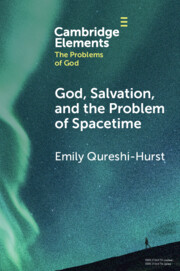Element contents
God, Salvation, and the Problem of Spacetime
Published online by Cambridge University Press: 12 October 2022
Summary
- Type
- Element
- Information
- Series: Elements in the Problems of GodOnline ISBN: 9781009269612Publisher: Cambridge University PressPrint publication: 10 November 2022



